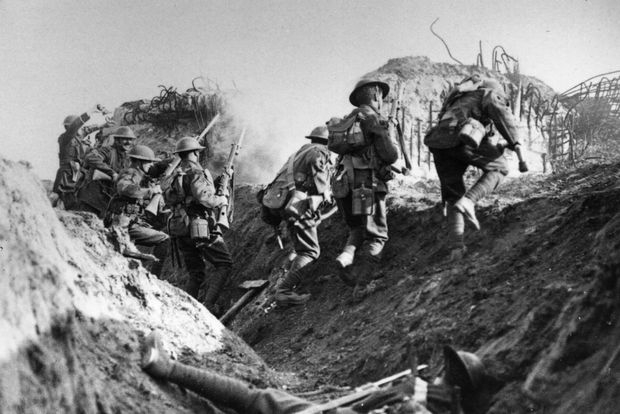From ‘National Concentration‘, The Spectator, 3 April 1915:
A WORD or two of explanation seems necessary in regard to the attitude which we and others have taken up towards football displays, racing, and drinking during the war. Some people seem to think that those who hold our views want to find in the war an excuse for introducing Puritanism by a side-wind. Others seem to imagine that we think a war can only be waged successfully with sour faces and grim looks, and that there is no place for that gaiety and gallantry which have always marked, and, thank Heaven! still mark, the British fighting man. Let us say with all the emphasis at our command that nothing is further from our thoughts, when we ask that racing and drinking should be stopped during the war, than the introduction of Puritanism, or the creation of a mournful and joyless nation. Our object is something very different.
To make our attitude clear we must consider the nature of war. War, as our philosophic enemy has always insisted, means in the last resort the imposition of your will upon those with whom you are at war. But the source of willpower is concentration of mind. Therefore, other things—i.e., numbers, equipment, leadership—being equal or nearly equal, that individual or group of individuals who can achieve the greatest concentration of mind during war will attain the mastery. Now no one can doubt the concentration of mind that has been attained by the German people. They have only one thought—how to wage the war successfully, how to impose their will upon the Allies. For this they have thrown aside the costumes of peace with indifferent hand. For this their opera music has been put on one side. To this one object the brow of every man and woman, old and young, has been bent. Such an odious phenomenon as the “hate” campaign against England is, if traced to its source, only an example of this concentration of mind, this effort to impose their will. For the German the war ” Lies in his bed, walks up and down with [him].”
He thinks and dreams of nothing else but the war and how to win it—how to dominate his enemies. Very different is still the attitude of the British nation towards the war. Some of our people no doubt show the true concentration of mind, keep eye and heart fixed hard upon the object, and allow no intruding thought to prevent the necessary exercise of will-power. They are inspired by the one thought. The mass of Englishmen, however, know no such concentration. For them the seriousness of the war comes and goes in light gusts of passion. One day some portent of disaster will make us all vigilant and serious. The next some little thing will act as a distraction and take the nation’s mind off the great essential. As a people we have often been accused of a want of high seriousness. We may now well be arraigned for a lack of that undivided attention which alone can make victory secure. There are too many things to distract us, too many diversions, too many excuses for letting our thoughts wander into other channels than that of beating our enemies. There are too many anodynes.
No doubt we may beat the Germans even if we do not reach that concentration of mind of which we have spoken, but the beating under those conditions will be slow and laborious, and may be almost as fatal as defeat. If we want really to end the war, and to make sure that the war shall not end us, there is only one motto which we can choose to guide us: Concentrate! Concentrate! Concentrate!






Comments